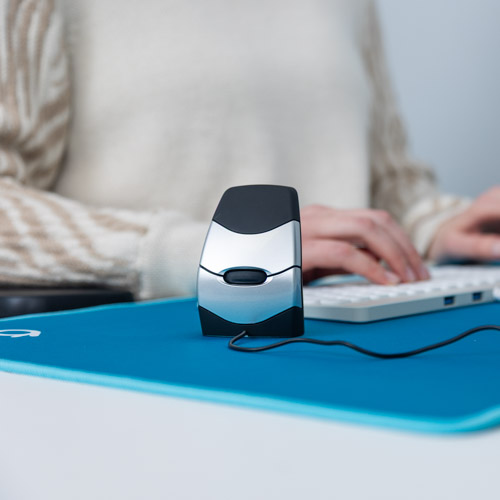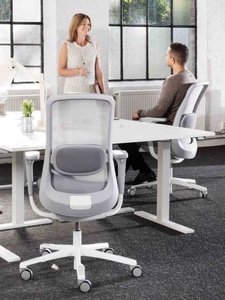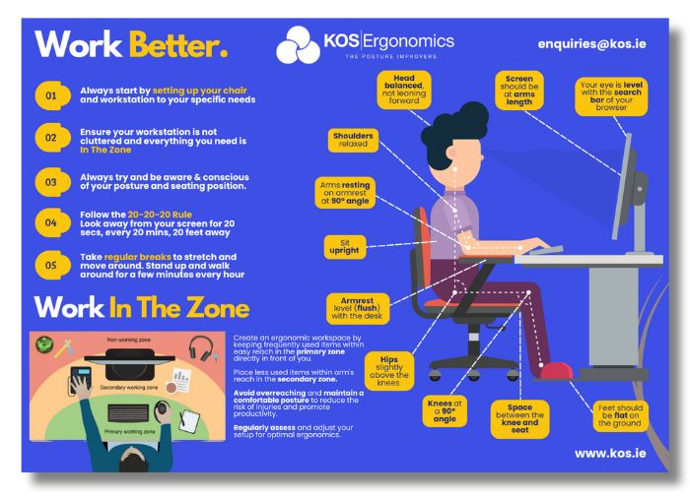


DXT Ergonomic Precision Mouse
1
A Cutting Edge Tool For Those Who Want Exceptional Comfort And Accuracy.
Promoting a natural hand posture thanks to its unique design, the DXT Ergonomic Precision Mouse helps reduce the risk of repetitive strain injuries and provides precise control over your tasks. Additionally, the ambidextrous design makes it suitable for left and right-handed use, furthering its versatility.
The DXT Ergonomic Precision Mouse has a host of features:
- Adjustable DPI Settings: Fine-tune your cursor sensitivity to match what you need to accomplish your tasks.
- Vertical Shape: Work with a neutral hand posture, reducing the risk of developing wrist pain and RSI.
- Ambidextrous Design: Switch between left and right-handed use, if you need to give your hand a break or if you're left-handed.
Key Features:
- With a quick click of a button, it becomes a left-hand mouse or a right-hand mouse. With this ambidextrous mouse, one user can use both hands for intensive mousing work.
- The DXT ambidextrous mouse is designed for comfort and ease of use. The left and right click buttons are the same as a standard mouse. So you can smoothly change hands and still use this mouse intuitively.
- Its ergonomic design allows accurate and precise cursor movements by allowing finer large movements of the fingers wrist and forearms.
- The small muscles and joints in the fingers have greater information-processing abilities for movement and sensation than other body parts. The larger muscle groups that operate the elbow and shoulder are adapted for power and a larger range of movement.
- The smaller muscle groups that operate the fingers and thumb have greater agility.
- Precision Mouse DXTAdopting the precision grip (Napier, 1956) where the index finger and thumb work closely together allows efficient, accurate cursor control.
- Because this verticle mouse is manipulated by the fingers and thumb it enables a precision grip which improves speed and accuracy. Resulting in improved productivity.
- You use the pads of the fingers for gross arm movements or a combination of the two to position and move this ergonomic mouse.
- This spreads the postural loading throughout the upper limb and reduces static activity. Helping to reduce the incidence of upper limb disorders.
- This ambidextrous mouse can be used by most people as it uses the chunk function of the fingers and thumb and avoids filling the palm.
Frequently Asked Questions
A: This is an online ergonomic training course designed to teach participants how to assess Visual Display Units (VDU) / Display Screen Equipment (DSE) safely and in compliance with Irish and European health & safety regulations. It covers workstation assessments, ergonomics, and MSD prevention.
A: This course is suitable for anyone responsible for workplace safety or office ergonomics, including:
-
Health & Safety managers or consultants
-
Health & Safety representatives
-
Occupational health professionals
-
Facilities management staff
-
Architects involved in office design
-
Office managers and business owners
A: No. This beginner-friendly online DSE/VDU course is suitable for anyone, regardless of prior ergonomics or health & safety experience.
A: The course is fully online via Microsoft Teams, featuring interactive lectures, group exercises, explainer videos, polls, and practical workstation assessments.
A: The course runs for 1 full day (9am–5pm) with breaks.
A: The course is delivered by highly experienced ergonomic and health & safety professionals from KOS Ergonomics, who work with leading Irish companies to reduce workplace risks and improve office ergonomics.
A: Yes. Participants who successfully complete the theory exam and practical assessment will receive a KOS Training Academy Level 1 VDU / DSE Assessor Certificate.
A: You’ll need a computer or tablet with a camera, microphone, and stable internet connection. A typical home or office workstation is sufficient for the practical exercises.
A: Key topics include:
-
Ergonomics and anthropometrics for office work
-
Hazards and risks associated with VDU/DSE use
-
Legal requirements under Irish and EU legislation
-
Workstation setup, environmental factors, and emerging trends (hot-desking, sit-stand desks, home working, laptop/tablet use)
-
Practical assessment and evaluation techniques
A: Yes. The course covers Regulation 72 of the 2007 Safety, Health & Welfare at Work Regulations, along with European Directive 90/270/EEC to ensure compliance for all EU countries.
A: Absolutely. By training staff as certified VDU / DSE assessors, your organisation can reduce musculoskeletal disorders (MSDs), improve employee wellbeing, and ensure compliance with legal obligations.
A: Yes. Participants have access to KOS Ergonomics’ expert advice and resources for any follow-up questions related to workstation assessments or ergonomics.

To install this Web App in your iPhone/iPad press ![]() and then Add to Home Screen.
and then Add to Home Screen.


















